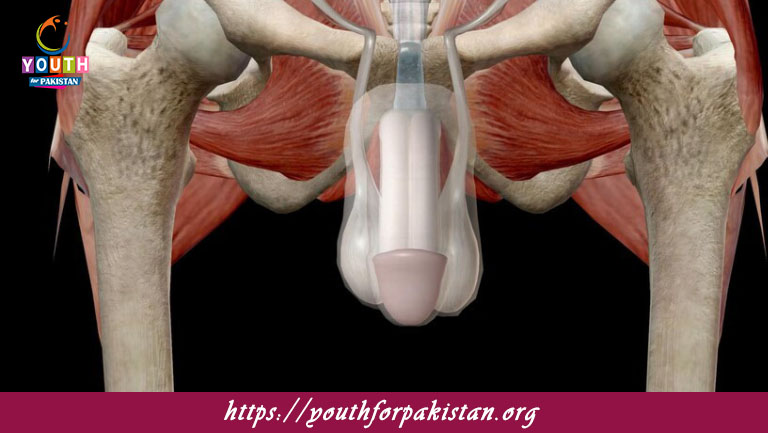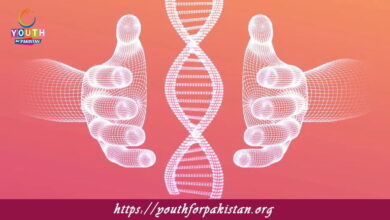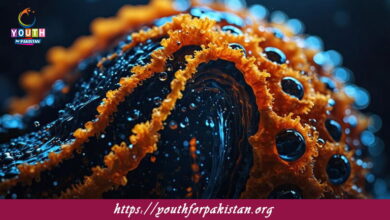Male Reproductive System MDCAT MCQs with Answers

Welcome to the Male Reproductive System MDCAT MCQs with Answers. In this post, we have shared Male Reproductive System Multiple Choice Questions and Answers for PMC MDCAT 2024. Each question in MDCAT Biology offers a chance to enhance your knowledge regarding Male Reproductive System MCQs in this MDCAT Online Test.
The primary function of the testes is to:
a) Produce testosterone
b) Produce sperm
c) Store sperm
d) Secrete semen
Which structure is responsible for the storage and maturation of sperm?
a) Seminal vesicle
b) Epididymis
c) Prostate gland
d) Vas deferens
The hormone primarily responsible for the development of male secondary sexual characteristics is:
a) Estrogen
b) Progesterone
c) Testosterone
d) Follicle-stimulating hormone (FSH)
The tube that transports sperm from the epididymis to the ejaculatory duct is called the:
a) Urethra
b) Seminal vesicle
c) Vas deferens
d) Penis
Which structure produces the majority of the seminal fluid?
a) Testes
b) Bulbourethral glands
c) Seminal vesicles
d) Prostate gland
The prostate gland is located:
a) Above the bladder
b) Below the testes
c) Surrounding the urethra
d) Adjacent to the seminal vesicles
The bulbourethral glands are also known as:
a) Cowper’s glands
b) Bartholin’s glands
c) Seminal vesicles
d) Prostate glands
Which part of the male reproductive system is involved in the process of ejaculation?
a) Penis
b) Urethra
c) Epididymis
d) Testes
The head of the sperm contains which important structure?
a) Mitochondria
b) Nucleus
c) Flagellum
d) Centriole
The process by which sperm are produced is known as:
a) Spermatogenesis
b) Oogenesis
c) Meiosis
d) Mitosis
Which structure provides a passage for urine and sperm to exit the body?
a) Urethra
b) Penis
c) Vas deferens
d) Epididymis
The process of sperm maturation occurs in the:
a) Seminal vesicle
b) Prostate gland
c) Epididymis
d) Vas deferens
The seminal fluid produced by the prostate gland is:
a) Alkaline
b) Acidic
c) Neutral
d) Saline
The structure of the male reproductive system that secretes a lubricating fluid is the:
a) Prostate gland
b) Seminal vesicles
c) Bulbourethral glands
d) Epididymis
The tube that carries sperm from the testes to the ejaculatory duct is called the:
a) Urethra
b) Vas deferens
c) Seminal vesicle
d) Epididymis
The gland that helps to neutralize the acidity of the female vagina during ejaculation is the:
a) Seminal vesicle
b) Bulbourethral gland
c) Prostate gland
d) Epididymis
Which part of the sperm is responsible for its motility?
a) Head
b) Midpiece
c) Flagellum
d) Acrosome
The testicular descent into the scrotum occurs:
a) During puberty
b) In the womb during fetal development
c) After birth
d) During adolescence
The male hormone responsible for stimulating sperm production is:
a) Luteinizing hormone (LH)
b) Follicle-stimulating hormone (FSH)
c) Progesterone
d) Estrogen
The external male genitalia include:
a) Penis and scrotum
b) Urethra and epididymis
c) Testes and seminal vesicles
d) Prostate gland and bulbourethral glands
The tissue of the penis that becomes engorged with blood during an erection is the:
a) Corpus spongiosum
b) Corpus cavernosum
c) Epididymis
d) Seminal vesicle
The male reproductive organ that delivers sperm into the female reproductive tract is the:
a) Urethra
b) Penis
c) Epididymis
d) Vas deferens
The gland responsible for producing a fluid that nourishes sperm is the:
a) Prostate gland
b) Bulbourethral gland
c) Seminal vesicles
d) Epididymis
The structure that produces sperm and testosterone is the:
a) Epididymis
b) Seminal vesicles
c) Prostate gland
d) Testes
The ejaculatory duct is formed by the union of:
a) Vas deferens and urethra
b) Seminal vesicles and prostate gland
c) Vas deferens and seminal vesicles
d) Urethra and epididymis
The external sac that houses the testes is the:
a) Penis
b) Epididymis
c) Scrotum
d) Urethra
The male reproductive system’s primary function is to:
a) Produce eggs
b) Facilitate the development of offspring
c) Produce sperm and deliver it to the female reproductive tract
d) Secrete hormones for growth
The structure that surrounds the urethra and is responsible for adding a component to the semen is the:
a) Seminal vesicles
b) Bulbourethral glands
c) Prostate gland
d) Testes
The male reproductive system’s component responsible for filtering and storing sperm is the:
a) Testes
b) Epididymis
c) Seminal vesicles
d) Prostate gland
The process by which sperm are transferred from the male to the female reproductive tract is called:
a) Fertilization
b) Ejaculation
c) Copulation
d) Conception
The primary function of the seminal vesicles is to:
a) Produce testosterone
b) Store sperm
c) Produce a nutrient-rich fluid for semen
d) Filter sperm
Which part of the sperm contains enzymes to penetrate the egg?
a) Acrosome
b) Head
c) Midpiece
d) Flagellum
The function of the vas deferens is to:
a) Produce sperm
b) Transport sperm from the testes to the ejaculatory duct
c) Secrete semen
d) Store sperm
The main function of the penis is to:
a) Produce sperm
b) Deliver sperm to the female reproductive tract
c) Store sperm
d) Produce seminal fluid
Which of the following structures secretes an alkaline fluid that neutralizes vaginal acidity?
a) Testes
b) Seminal vesicles
c) Prostate gland
d) Bulbourethral glands
The fluid that is ejected during ejaculation is called:
a) Semen
b) Spermatocyte
c) Seminal plasma
d) Testosterone
The structure that is involved in the regulation of testicular temperature is the:
a) Epididymis
b) Scrotum
c) Penis
d) Prostate gland
Which hormone stimulates the testes to produce testosterone?
a) Luteinizing hormone (LH)
b) Follicle-stimulating hormone (FSH)
c) Prolactin
d) Growth hormone
The duct that carries sperm from the epididymis to the ejaculatory duct is the:
a) Seminal vesicle
b) Vas deferens
c) Urethra
d) Prostate duct
The role of the prostate gland in the male reproductive system is to:
a) Produce sperm
b) Secrete an alkaline fluid that enhances sperm motility
c) Store sperm
d) Regulate testicular temperature
The part of the penis that contains the urethra is the:
a) Corpus spongiosum
b) Corpus cavernosum
c) Glans penis
d) Prepuce
The structure that helps in the transportation of sperm during ejaculation is the:
a) Urethra
b) Epididymis
c) Seminal vesicles
d) Testes
The primary site of sperm production is the:
a) Epididymis
b) Seminal vesicles
c) Testes
d) Prostate gland
The process that leads to the formation of sperm is called:
a) Spermatogenesis
b) Oogenesis
c) Mitosis
d) Meiosis
The penis is made up of three columns of erectile tissue. Which one surrounds the urethra?
a) Corpus cavernosum
b) Corpus spongiosum
c) Epididymis
d) Seminal vesicle
Which of the following glands is responsible for producing a pre-ejaculatory fluid that lubricates the urethra?
a) Seminal vesicles
b) Prostate gland
c) Bulbourethral glands
d) Epididymis
The structure of the male reproductive system that is involved in the ejaculation of sperm is the:
a) Penis
b) Urethra
c) Vas deferens
d) Epididymis
The secretion of which gland contributes to the formation of semen?
a) Prostate gland
b) Bulbourethral glands
c) Seminal vesicles
d) All of the above
The primary function of the testicles is to:
a) Store sperm
b) Produce sperm and hormones
c) Produce seminal fluid
d) Regulate body temperature
The male reproductive structure that delivers sperm into the female reproductive tract is the:
a) Epididymis
b) Penis
c) Urethra
d) Seminal vesicle
If you are interested to enhance your knowledge regarding Physics, Chemistry, Computer, and Biology please click on the link of each category, you will be redirected to dedicated website for each category.





